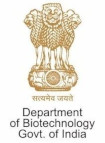Genome-Wide Analysis of Polyadenylation Events in Schmidtea mediterranea.
| Title | Genome-Wide Analysis of Polyadenylation Events in Schmidtea mediterranea. |
| Publication Type | Journal Article |
| Year of Publication | 2016 |
| Authors | Lakshmanan V, Bansal D, Kulkarni J, Poduval D, Krishna S, Sasidharan V, Anand P, Seshasayee A, Palakodeti D |
| Journal | G3 (Bethesda) |
| Volume | 6 |
| Issue | 10 |
| Pagination | 3035-3048 |
| Date Published | 2016 10 13 |
| ISSN | 2160-1836 |
| Keywords | 3' Untranslated Regions, Animals, Computational Biology, Genome, Helminth, Genome-Wide Association Study, High-Throughput Nucleotide Sequencing, MicroRNAs, Molecular Sequence Annotation, Platyhelminths, Poly A, Polyadenylation, Reproducibility of Results, RNA Interference, RNA Processing, Post-Transcriptional, RNA, Messenger |
| Abstract | In eukaryotes, 3' untranslated regions (UTRs) play important roles in regulating posttranscriptional gene expression. The 3'UTR is defined by regulated cleavage/polyadenylation of the pre-mRNA. The advent of next-generation sequencing technology has now enabled us to identify these events on a genome-wide scale. In this study, we used poly(A)-position profiling by sequencing (3P-Seq) to capture all poly(A) sites across the genome of the freshwater planarian, Schmidtea mediterranea, an ideal model system for exploring the process of regeneration and stem cell function. We identified the 3'UTRs for ∼14,000 transcripts and thus improved the existing gene annotations. We found 97 transcripts, which are polyadenylated within an internal exon, resulting in the shrinking of the ORF and loss of a predicted protein domain. Around 40% of the transcripts in planaria were alternatively polyadenylated (ApA), resulting either in an altered 3'UTR or a change in coding sequence. We identified specific ApA transcript isoforms that were subjected to miRNA mediated gene regulation using degradome sequencing. In this study, we also confirmed a tissue-specific expression pattern for alternate polyadenylated transcripts. The insights from this study highlight the potential role of ApA in regulating the gene expression essential for planarian regeneration. |
| DOI | 10.1534/g3.116.031120 |
| Alternate Journal | G3 (Bethesda) |
| PubMed ID | 27489207 |
| PubMed Central ID | PMC5068929 |
| Grant List | / / Wellcome Trust / United Kingdom |

